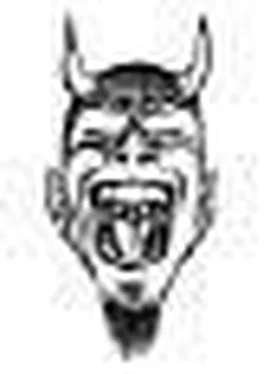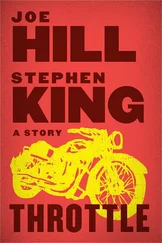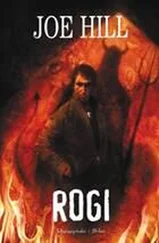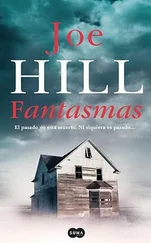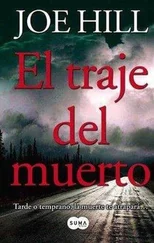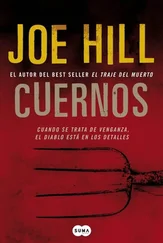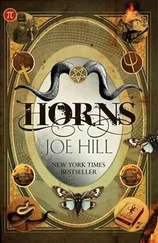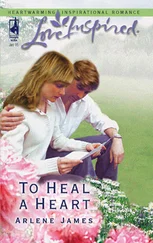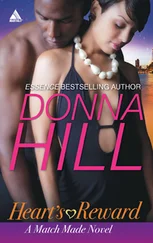She scooped a hand under her breasts. “The fat in these is going to drain steadily into my ass. I got a sweet tooth, so probably my teeth will fall out on me. On the bright side, I’ll be able to pop out my dentures for toothless, old-lady blow jobs.”
He touched her chin, lifted her face toward his. He studied her high cheekbones and the eyes in deep, bruised hollows, eyes that watched with a wry amusement that did not quite mask her desire to meet with his approval.
“You got a good face,” he said. “You got good eyes. You’ll be all right. With old ladies it’s all about the eyes. You want to be an old lady with lively eyes, so it looks like you’re always thinking of something funny. Like you’re looking for trouble.”
He drew his hand away. She peered down into her coffee, smiling, flattered into an uncharacteristic shyness.
“Sounds like you’re talking about my grandma Bammy,” she said. “You’ll love her. We could be there by lunch.”
“Sure.”
“My grandma looks like the friendliest, most harmless old thing. Oh, but she likes tormenting people. I was living with her by the time I was in the eighth grade. I’d have my boyfriend Jimmy Elliott over—to play Yahtzee, I said, but really we were sneaking wine. Bammy would leave a half-full bottle of red in her fridge most days, leftover from dinner the night before. And she knew what we were doing, and one day she switched purple ink for the booze and left it for us. Jimmy let me take the first slug. I got a mouthful and went and coughed it all down myself. When she came home, I still had a big purple ring on my mouth, purple stains all down my jaw, purple tongue. It didn’t come out for a week either. I expected Bammy to paddle me good, but she just thought it was funny.”
The waitress came for their order. When she was gone, Georgia said, “What was it like being married, Jude?”
“Peaceful.”
“Why did you divorce her?”
“I didn’t. She divorced me.”
“She catch you in bed with the state of Alaska or something?”
“No. I didn’t cheat—well, not too often. And she didn’t take it personal.”
“She didn’t? Are you for real? If we were married and you helped yourself to a piece, I’d throw the first thing came to hand at you. And the second. I wouldn’t drive you to the hospital either. Let you bleed.” She paused, bent over her mug, then said, “So what did it?”
“It would be hard to explain.”
“Because I’m too stupid?”
“No,” he said. “More like I’m not smart enough to explain it to myself, let alone anyone else. For a long time, I wanted to work at being a husband. Then I didn’t. And when I didn’t anymore—she just knew it. Maybe I made sure she knew it.” And as he said it, Jude was thinking how he’d started staying up late, waiting for her to get tired and go to bed without him. He’d slip in later, after she was asleep, so there was no chance of making love. Or how he would sometimes start playing guitar, picking at a tune, in the middle of her telling him something—playing right over her talk. Remembering how he’d held on to the snuff movie instead of throwing it away. How he’d left it out where she could find it—where he supposed he knew she would find it.
“That doesn’t make sense. Just all of a sudden, you didn’t feel like making the effort? That doesn’t seem like you. You aren’t the type to give up on things for no reason.”
It wasn’t for no reason, but what reason there was defied articulation, could not be put into words in a way that made sense. He had bought his wife the farmhouse, bought it for both of them. He bought Shannon one Mercedes, then another, a big sedan and a convertible. They took weekends, sometimes, in Cannes, and flew there on a private jet where they were served jumbo shrimp and lobster tail on ice. And then Dizzy died—died as badly and painfully as a person could die—and Jerome killed himself, and still Shannon would come into Jude’s studio and say, “I’m worried about you. Let’s go to Hawaii” or “I bought you a leather jacket—try it on,” and he would begin to strum at his guitar, hating the chirp of her voice and playing over it, hating the thought of spending more money, of owning another jacket, of going on another trip. But mostly just hating the contented, milk-fed look of her face, her fat fingers with all their rings, the cool look of concern in her eyes.
At the very end, when Dizzy was blind and raging with fever and soiling himself almost hourly, he got the idea in his head that Jude was his father. Dizzy wept and said he didn’t want to be gay. He said, “Don’t hate me anymore, Dad, don’t hate me.” And Jude said, “I don’t. I never.” And then Dizzy was gone, and Shannon went right on ordering Jude clothes and thinking about where they should eat lunch.
“Why didn’t you have children with her?” Georgia asked.
“I was worried I’d have too much of my father in me.”
“I doubt you’re anything like him,” she said.
He considered this over a forkful of food. “No. He and I have pretty much exactly the same disposition.”
“What scares me is the idea of having kids and then them finding out the truth about me. Kids always find out. I found out about my folks.”
“What would your kids find out about you?”
“That I dropped out of high school. That when I was thirteen I let a guy turn me into a prostitute. The only job I was ever good at involved taking my clothes off to Mötley Crüe for a roomful of drunks. I tried to kill myself. I been arrested three times. I stole money from my grandma and made her cry. I didn’t brush my teeth for about two years. Am I missing anything?”
“So this is what your kid would find out: No matter what bad thing happens to me, I can talk to my mother, because she’s been through it all. No matter what shitty thing happens to me, I can survive it, because my mom was through worse, and she made it.”
Georgia lifted her head, smiling again, her eyes glittering bright with pleasure and mischief—the kind of eyes Jude had been talking about only a few minutes before.
“You know, Jude,” she said, reaching for her coffee with the fingers of her bandaged hand. The waitress was behind her, leaning forward with the coffeepot to refill Georgia’s mug and not looking at what she was doing, staring instead down at her check pad. Jude saw what was going to happen but couldn’t force the warning out of his throat in time. Georgia went on talking, “Sometimes you’re such a decent guy, I can almost forget what an assh—”
The waitress poured just as Georgia moved her cup and dumped coffee over the bandaged hand. Georgia wailed and yanked the hand back, drawing it tight against her chest, her face twisting in a hurt, sickened grimace. For a moment there was glassy shock in her eyes, a flat and empty shine that made Jude think she might be about to pass out.
Then she was up, clutching the bad hand in her good one. “Want to watch where the fuck you’re pourin’ that, you dumb bitch?” she shouted at the waitress, that accent coming over her again, her voice going country on her.
“Georgia,” Jude said, starting to rise.
She made a face and waved him back to his chair. She thudded the waitress with her shoulder, on her way by her, stalking toward the hall to the bathrooms.
Jude nudged his plate aside. “Guess I’ll take the check when you get a chance.”
“I am so sorry,” the waitress said.
“Accidents happen.”
“I am so sorry,” the waitress repeated. “But that is no reason for her to talk to me that way.”
“She got burnt. I’m surprised you didn’t hear worse.”
The waitress said, “The two of you. I knew what I was serving the moment I laid eyes on you. And I served you just as nice as I’d serve anyone.”
Читать дальше
